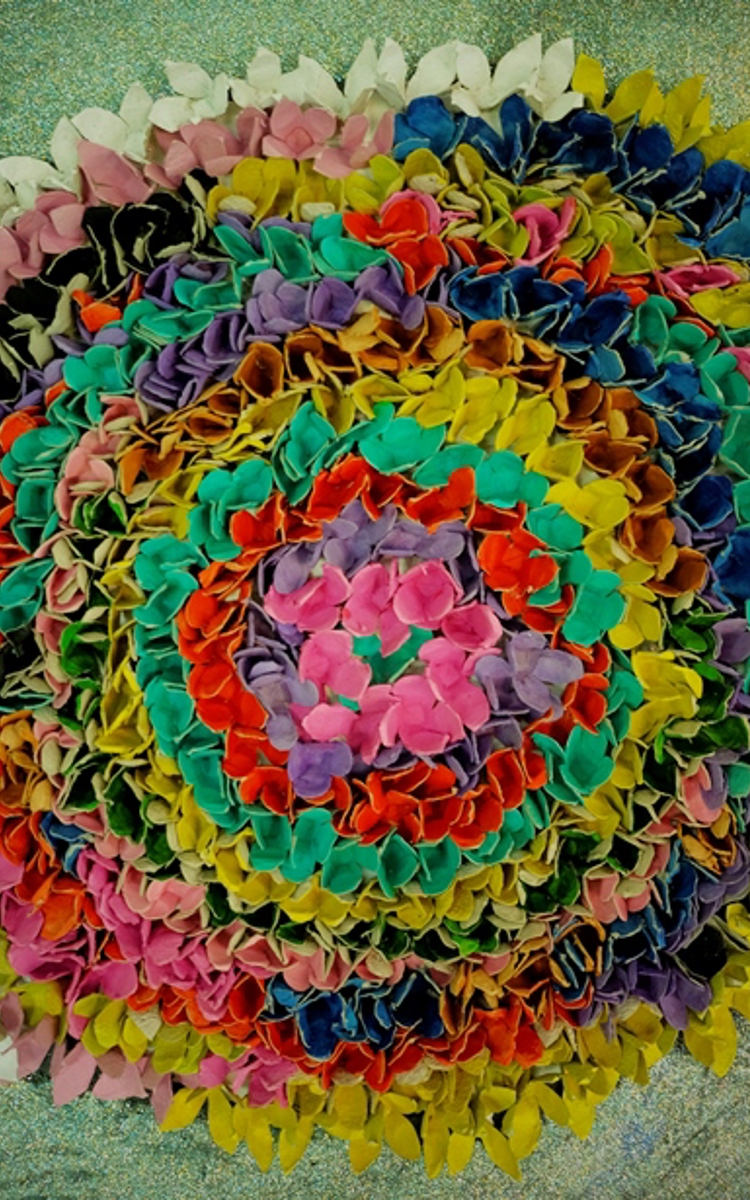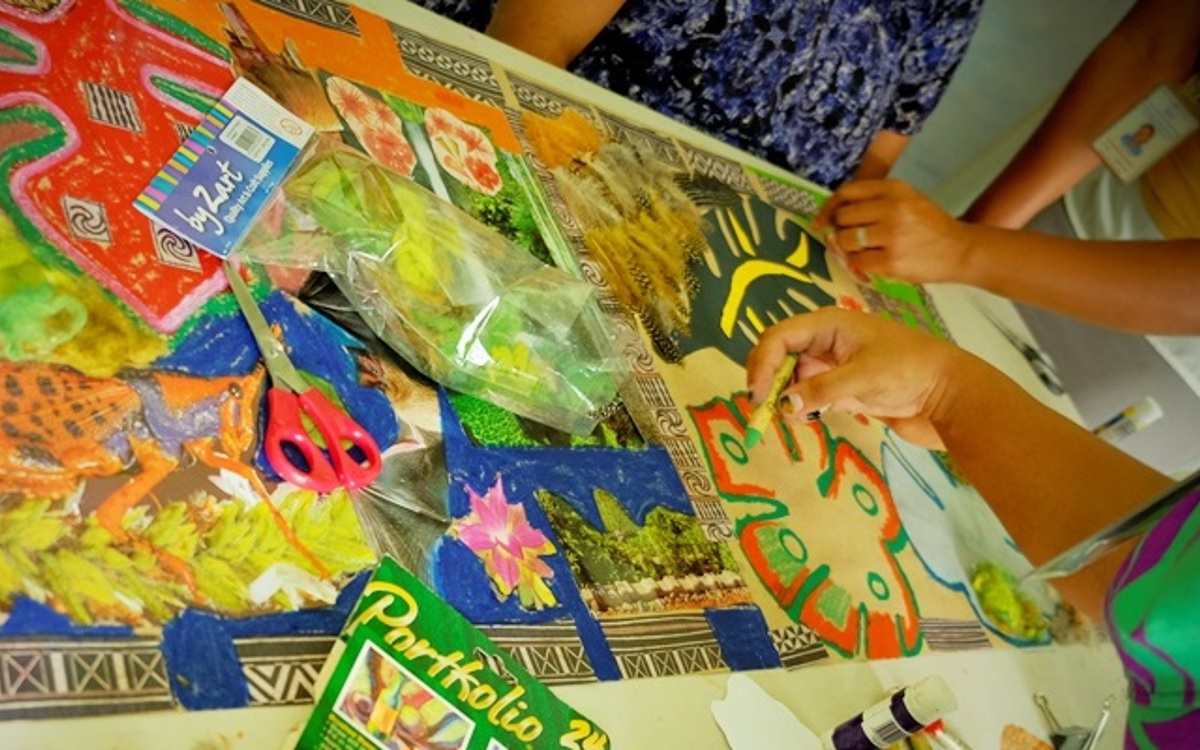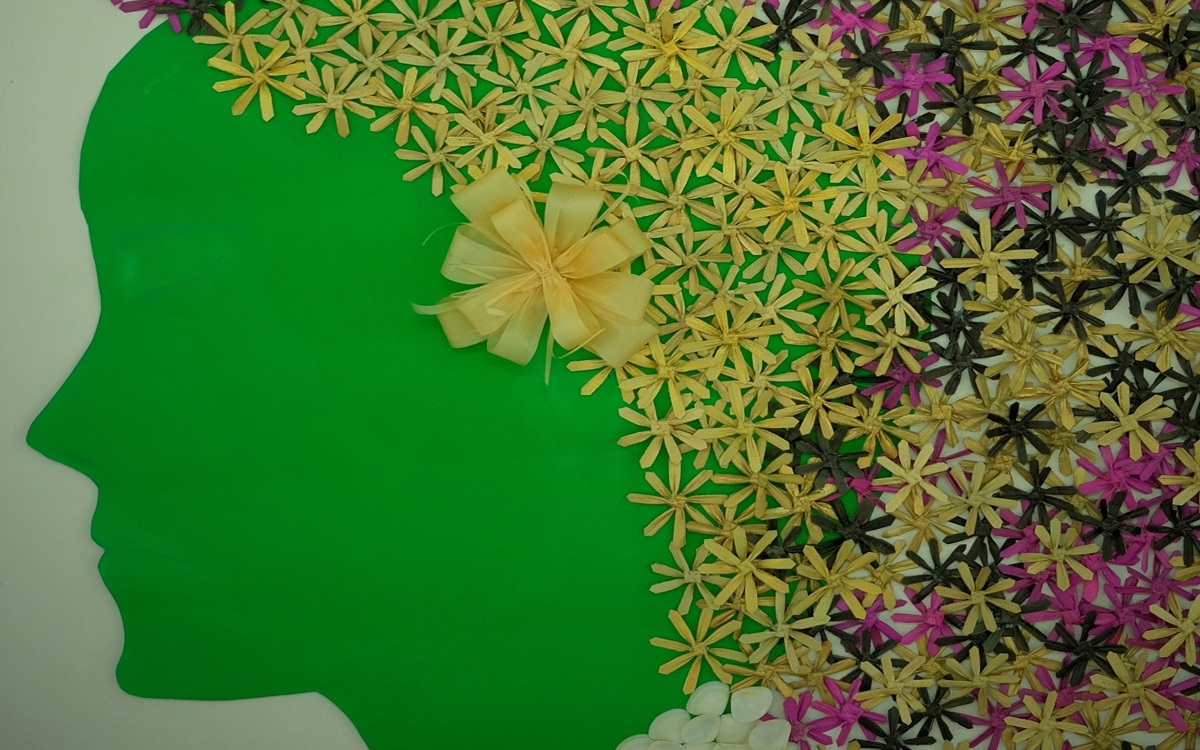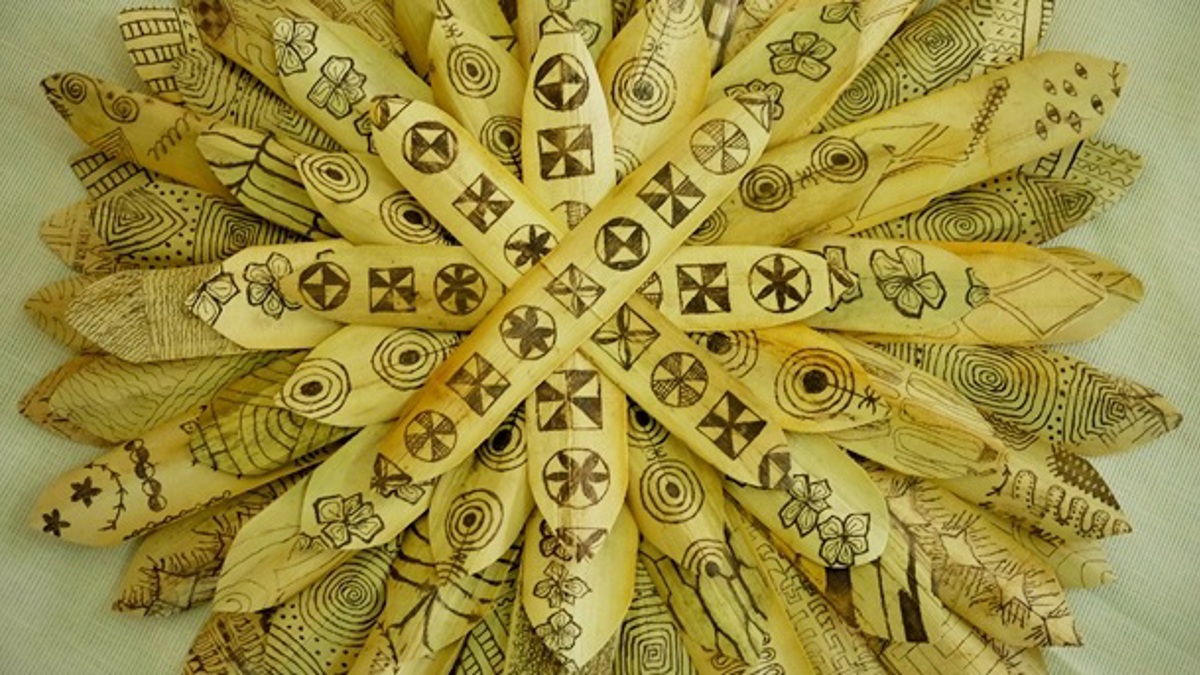Can art therapy help people find their way back from mental illness? A university collaboration in Fiji is finding out. By Odille Chang, Fiji National University

Can art therapy help people find their way back from mental illness? A university collaboration in Fiji is finding out.
By Odille Chang, Fiji National University
Paints, pastels, egg cartons, clay, canvas and rice: these may not sound like the traditional tools used in the treatment of mental health. But a recent research collaboration at Fiji National University has found that art-making could offer a meaningful and affordable recovery tool for Fijian people trying to find their way back from mental illness.
In a low-resource setting such as Fiji, it’s important that we think creatively and innovatively about ways to help people suffering or recovering from mental disorders. Art therapy aims to help people improve their mental health through creative practice, and is based on the idea that self-expression through art can unlock emotions and help the healing process. Crucially, it’s usually about the thoughts, feelings and ideas that accompany the process, rather than the resulting artwork itself.
The use of art in therapy can yield many benefits, but a key outcome is a sense of being able to understand oneself better. In this way, a person can develop a deeper understanding of the issues or core beliefs that may be contributing to their illness, as well as strengths that could help their recovery. Art therapy can also increase self-esteem, lessen levels of stress and anxiety, offer a sense of control, and provide a safe outlet through which to express deep and difficult feelings – particularly for those who struggle to express emotions through words alone. These benefits, however, haven’t been widely explored in low and middle income settings.
With this in mind, researchers at Fiji National University joined forces with La Trobe University in Australia, the Fiji Ministry of Health, St Vincent’s Mental Health Service, and the Fiji Alliance for Mental Health to explore the challenges, benefits, and potential of art as a mental health recovery tool in Fiji.

Tradition and innovation
The project began with a series of training workshops to prepare facilitators and build capacity in the use of art therapy in mental health. Chosen facilitators then went on to run a year-long series of once or twice weekly workshops which engaged patients, their carers and families, health professionals, and volunteers in regular art-making sessions.
The workshops sought to establish a neutral and non-judgmental environment in which participants were guided to express themselves. We provided a variety of art forms that we hoped would appeal, including acrylic and fabric paints, pastels, calico, cardboard, rice, canvas and clay, as well as local materials such as voivoi – the dried leaves of an indigenous plant traditionally used for mat weaving, and masi – a fibrous cloth made from the inner bark of the mulberry tree. The use of traditional art forms and materials has been a strong point of the project and highlights Fiji’s multicultural foundations.
We adopted a strengths-based approach – where the focus is on a participant’s strengths and skills, rather than their perceived weaknesses. A particularly important element for us was incorporating community and traditional values, and exploring cultural understandings of art-making in Fiji.

The art-making sessions were well-received by participants, who reported that the imaginative, creative process boosted self-esteem, fulfilment and morale. Others spoke of feeling a sense of connectedness to others and feelings of acceptance. A facilitator of the art sessions herself described how art-making ‘helped lighten the mood and allowed participants to self-express and become relaxed’.
As a psychiatrist working in the Fiji mental health service, the outcomes of this project have been very exciting to me. It has shown that the use of art is an acceptable, appealing and affordable medium – one that is enabling and engaging to users, and can have beneficial and meaningful outcomes when used as a recovery tool.
Working together
Involving those affected by mental health issues in the project’s development has been an essential element of its success, stressing the importance of the adage ‘nothing for them without them’. Universities, too, have played a vital role, providing local evidence for what is known anecdotally. We have also been able to provide evidence and testimony of strategies that are beneficial and practical in our context, and that have only previously been reported on in the developed world.

Similarly, longstanding partnerships both within and outside Fiji have been vital. The Fiji Ministry of Health and Medical Services has frequently collaborated with Fiji National University and the Fiji Alliance for Mental Health to raise the profile of mental health issues in the country. Meanwhile, by working closely with St. Vincent’s Mental Health Pacific Fund, local stakeholders have benefited from opportunities for training and capacity building.
For the next phase, we hope to explore other art forms that are particularly well accepted in Fiji, such as dance and music. Another interest is talanoa, a traditional Fijian concept of storytelling, which allows the open exchange of ideas and experiences for the collective good. This idea of ‘storytelling for a purpose’ has found particular resonance in recent years through the Talanoa Dialogue – launched at the United Nations Climate Change Conference in Fiji in 2017 – which used storytelling to create a process of inclusive and transparent dialogue around climate change.
Despite the overwhelmingly positive feedback for our project, it remains difficult to harness local support for mental health activities due to the stigma sadly still associated with mental illness. But in spite of the challenges, the project team is keen to forge ahead and work with local communities to continue the momentum and enthusiasm, and to establish art-making as a recognised recovery tool in Fiji.
Dr Odille Chang is Associate Professor of Psychiatry and Head of the School of Medical Sciences at Fiji National University.
All images are from art therapy workshops run as part of the project in Fiji. Our thanks to all participants for allowing us to share them.
